Is blockchain your next move? The tech world buzzes with its name, but is a “blockchain career” more than just hype? Perhaps you’re a seasoned coder, a data whiz, or simply tech-curious. You likely wonder if this field offers real opportunity or fleeting trends.
This article cuts through the noise. It reveals the concrete blockchain career paths available now. It shows what skills you need to thrive. Forget overblown promises and focus on real skills. Learn the truth about blockchain jobs, salary expectations, and how to position yourself for success.
Blockchain Career Opportunities Now
Blockchain. You hear it everywhere. But what does it really mean for your career? Beyond the buzzwords and crypto hype, blockchain technology is transforming industries. This shift creates real, in-demand jobs. Let’s dive deep into the world of “blockchain career” opportunities and how you can seize them.
What is Blockchain, Anyway?
Before we explore “blockchain career” paths, a quick refresher. Imagine a digital ledger, shared across many computers. This ledger records transactions in “blocks,” chained together securely. That, in simple terms, is a blockchain.
Its key features include:
- Decentralization: No single entity controls the blockchain.
- Transparency: All participants can view the transaction history.
- Security: Cryptography makes it extremely difficult to tamper with the data.
- Immutability: Once a block is added, it cannot be altered.
These qualities make blockchain ideal for applications far beyond cryptocurrencies. Think supply chain management, healthcare, voting systems, and more.
Why Blockchain Careers Are Booming
Several factors fuel the growth of “blockchain career” prospects:
- Increased Adoption: Businesses see blockchain’s potential to improve efficiency, security, and transparency.
- Investment: Venture capital firms are pouring money into blockchain startups.
- Demand for Skilled Professionals: There’s a shortage of people with the necessary blockchain expertise.
- Industry Diversification: Blockchain solutions are expanding into various sectors.
This creates a perfect storm for those looking to enter or advance their “blockchain career.”
Key Blockchain Career Paths
The blockchain space offers a wide range of roles. Here are some of the most prominent:
- Blockchain Developer: The core role. Developers build and maintain blockchain networks, write smart contracts, and create decentralized applications (dApps).
- Blockchain Engineer: Similar to developers but often focus on the infrastructure and architecture of blockchain systems.
- Smart Contract Developer: Specializes in writing and auditing smart contracts – self-executing agreements stored on the blockchain.
- Blockchain Architect: Designs the overall structure of blockchain solutions, considering scalability, security, and integration with existing systems.
- Blockchain Consultant: Provides guidance to businesses on how to leverage blockchain technology to solve their specific problems.
- Blockchain Project Manager: Oversees blockchain projects, ensuring they stay on track and within budget.
- Blockchain Analyst: Researches and analyzes blockchain data to identify trends, risks, and opportunities.
- Cryptocurrency Trader/Analyst: Trades cryptocurrencies and analyzes market trends to make informed investment decisions.
- Security Auditor: Examines blockchain systems and smart contracts for vulnerabilities and security flaws.
- Legal and Compliance Expert: Navigates the complex legal and regulatory landscape surrounding blockchain and cryptocurrencies.
This list isn’t exhaustive, but it gives you a sense of the diverse “blockchain career” opportunities available.
Essential Skills for a Blockchain Career
Landing a “blockchain career” requires a specific skill set. Here are some of the most important:
- Programming Languages: Solidity (for Ethereum), JavaScript, Python, C++, Java, Go.
- Blockchain Fundamentals: Understanding of blockchain architecture, consensus mechanisms (Proof-of-Work, Proof-of-Stake), cryptography, and data structures.
- Smart Contract Development: Experience writing, testing, and deploying smart contracts.
- DApp Development: Knowledge of building decentralized applications using blockchain technologies.
- Cryptography: Understanding of encryption, hashing, and digital signatures.
- Data Structures and Algorithms: Crucial for efficient data management and optimization.
- Networking: Understanding of network protocols and distributed systems.
- Security: Knowledge of security best practices and common vulnerabilities.
- Problem-Solving: Ability to analyze complex problems and develop innovative solutions.
- Communication: Ability to clearly explain technical concepts to both technical and non-technical audiences.
Technical Skills Deep Dive
Let’s unpack these technical skills a little more.
Programming Languages:
- Solidity: This is the language for developing smart contracts on the Ethereum blockchain. If you’re serious about building dApps on Ethereum, Solidity is essential.
- JavaScript: Front-end development for dApps often uses JavaScript frameworks like React or Angular.
- Python: Useful for scripting, data analysis, and building blockchain tools.
- C++: High-performance language used in core blockchain development.
- Java: Another versatile language used in various blockchain projects.
- Go: Popular for its concurrency features, making it suitable for building blockchain infrastructure.
Blockchain Fundamentals:
- Blockchain Architecture: Understand the different types of blockchains (public, private, consortium), their components, and how they interact.
- Consensus Mechanisms: Know how blockchains achieve agreement on the validity of transactions. Compare and contrast Proof-of-Work (PoW), Proof-of-Stake (PoS), and other mechanisms.
- Cryptography: Grasp the basics of hashing algorithms (SHA-256, Keccak-256), digital signatures, and encryption techniques.
- Data Structures: Understand how data is organized and stored on the blockchain using structures like Merkle trees.
Smart Contract Development:
- Writing Smart Contracts: Learn the syntax and semantics of Solidity (or other smart contract languages).
- Testing Smart Contracts: Use testing frameworks to ensure your smart contracts function correctly and are free from vulnerabilities.
- Deploying Smart Contracts: Understand how to deploy smart contracts to a blockchain network.
- Auditing Smart Contracts: Learn how to identify and mitigate potential security risks in smart contracts.
DApp Development:
- Front-End Development: Use JavaScript frameworks (React, Angular, Vue.js) to build the user interface for your dApp.
- Back-End Development: Connect your front-end to the blockchain using libraries like Web3.js or ethers.js.
- Integration with Wallets: Enable users to interact with your dApp using cryptocurrency wallets like MetaMask.
Beyond the Hard Skills
While technical skills are paramount for many “blockchain career” roles, don’t underestimate the importance of soft skills.
- Critical Thinking: Blockchain is a rapidly evolving field. You need to be able to think critically and adapt to new developments.
- Collaboration: Blockchain projects often involve teams of developers, designers, and business professionals.
- Adaptability: The blockchain landscape is constantly changing. You need to be willing to learn new technologies and approaches.
- Business Acumen: Understanding how blockchain can solve real-world business problems is highly valuable.
How to Get Started in Blockchain
Ready to launch your “blockchain career”? Here’s a roadmap:
- Learn the Fundamentals: Start with online courses, tutorials, and books to gain a solid understanding of blockchain technology.
- Choose a Specialization: Focus on a specific area of interest, such as smart contract development, security auditing, or blockchain consulting.
- Build Projects: Create your own blockchain projects to gain hands-on experience. This is crucial for demonstrating your skills to potential employers.
- Contribute to Open Source: Participate in open-source blockchain projects to collaborate with other developers and build your reputation.
- Network: Attend blockchain conferences, meetups, and online forums to connect with other professionals in the field.
- Get Certified: Consider getting a blockchain certification to validate your skills and knowledge.
- Build a Portfolio: Showcase your projects, contributions, and certifications on a website or online portfolio.
- Apply for Jobs: Search for blockchain job openings on job boards, company websites, and LinkedIn.
Free and Paid Resources
The good news? Many resources can help you learn about blockchain.
Free Resources:
- Online Courses: Platforms like Coursera, edX, and Udemy offer free introductory courses on blockchain technology.
- Tutorials: Websites like CryptoZombies provide interactive tutorials for learning Solidity and smart contract development.
- Documentation: Read the official documentation for blockchain platforms like Ethereum and Hyperledger.
- Whitepapers: Study the whitepapers of popular blockchain projects to understand their underlying technology and goals.
- Community Forums: Engage with other blockchain enthusiasts on forums like Reddit (r/blockchain, r/cryptocurrency) and Stack Overflow.
Paid Resources:
- Bootcamps: Immersive blockchain bootcamps provide intensive training and career support.
- Advanced Courses: Paid courses on platforms like Coursera and Udemy offer more in-depth knowledge and hands-on experience.
- Certifications: Blockchain certifications can validate your skills and increase your credibility.
- Mentorship Programs: Connect with experienced blockchain professionals who can provide guidance and support.
Blockchain Job Boards and Communities
Where can you find “blockchain career” opportunities? These platforms are great places to start.
- LinkedIn: Search for blockchain jobs and connect with professionals in the field.
- Indeed: A general job board that also lists blockchain positions.
- Crypto Jobs List: A dedicated job board for cryptocurrency and blockchain roles.
- AngelList: A platform for startups, including many blockchain companies.
- Glassdoor: Research company reviews and salary information.
- Reddit: Participate in blockchain communities and find job postings.
- Meetup: Attend local blockchain events to network with other professionals.
Blockchain Career Salaries: What to Expect
Salary expectations for “blockchain career” roles vary widely depending on experience, location, and specific skills. However, in general, blockchain professionals are well-compensated.
According to ZipRecruiter, the average annual salary for blockchain developers in the United States is around $154,000. Entry-level positions may start around $100,000, while experienced developers can earn upwards of $200,000 or more.
Here’s a breakdown of typical salary ranges for different blockchain roles:
- Blockchain Developer: $100,000 – $200,000+
- Smart Contract Developer: $90,000 – $180,000+
- Blockchain Engineer: $110,000 – $220,000+
- Blockchain Architect: $130,000 – $250,000+
- Blockchain Consultant: $80,000 – $170,000+
- Blockchain Project Manager: $90,000 – $190,000+
- Blockchain Analyst: $70,000 – $150,000+
- Security Auditor: $80,000 – $160,000+
Keep in mind that these are just estimates. Actual salaries may vary. Factors like company size, location (e.g., San Francisco vs. a smaller city), and specific skill set will influence the final number.
The Future of Blockchain Careers
What does the future hold for “blockchain career” opportunities? Most experts agree that the long-term outlook is positive.
As blockchain technology matures and adoption continues to grow, the demand for skilled professionals will only increase. This creates a promising landscape for those willing to invest in their skills and knowledge.
Emerging Trends
Several trends are shaping the future of “blockchain career” paths:
- Decentralized Finance (DeFi): DeFi is revolutionizing the financial industry by creating decentralized alternatives to traditional financial services. This creates new opportunities for developers, analysts, and security experts.
- Non-Fungible Tokens (NFTs): NFTs are unique digital assets that represent ownership of items like art, music, and collectibles. This trend is creating new roles in areas like NFT development, marketing, and legal compliance.
- Web3: Web3 is the next evolution of the internet, built on blockchain technology. This creates opportunities for developers to build decentralized applications that are more secure, transparent, and user-controlled.
- Enterprise Blockchain: Businesses are increasingly adopting private and consortium blockchains to improve their operations and supply chains. This creates opportunities for consultants, architects, and project managers.
- Blockchain Gaming: The integration of blockchain technology into video games is creating new ways for players to earn rewards and own in-game assets. This trend is creating opportunities for game developers, designers, and marketers.
Challenges and Considerations
While the “blockchain career” landscape is promising, there are also challenges to consider:
- Regulation: The regulatory landscape surrounding blockchain and cryptocurrencies is still evolving. This creates uncertainty and can impact career opportunities.
- Volatility: The value of cryptocurrencies can be highly volatile. This can impact the financial stability of blockchain companies and the job security of their employees.
- Scalability: Blockchain networks can be slow and expensive to use. This limits their adoption and creates challenges for developers.
- Security: Blockchain systems are not immune to security threats. This creates the need for skilled security auditors and developers.
- Skills Gap: The demand for skilled blockchain professionals exceeds the supply. This can make it difficult to find qualified candidates and drive up salaries.
Beyond the Code: Non-Technical Blockchain Roles
Not all “blockchain career” opportunities require deep technical expertise. Here are some roles for those with non-technical backgrounds:
- Blockchain Marketing: Promoting blockchain projects and companies.
- Community Management: Building and engaging with blockchain communities.
- Technical Writing: Creating clear and concise documentation for blockchain technologies.
- Business Development: Identifying and pursuing new business opportunities for blockchain companies.
- Sales: Selling blockchain solutions to businesses.
- Project Management: Overseeing blockchain projects.
- Legal and Compliance: Navigating the legal and regulatory landscape.
These roles are crucial for the success of blockchain projects. They demonstrate the versatility of “blockchain career” paths. You don’t have to be a coder to get involved.
Making the Leap: Transitioning to a Blockchain Career
Already working in tech? Transitioning to a “blockchain career” may be easier than you think.
- Leverage Existing Skills: Identify how your existing skills can be applied to blockchain. For example, if you’re a web developer, you can learn how to build dApps.
- Focus on a Specific Area: Choose a specific area of blockchain that aligns with your interests and skills.
- Take Online Courses: Enroll in online courses to learn the fundamentals of blockchain and the specific technologies you need.
- Build Projects: Create your own blockchain projects to gain hands-on experience.
- Network: Connect with other blockchain professionals to learn about opportunities and get advice.
- Highlight Relevant Experience: Tailor your resume and cover letter to highlight your relevant skills and experience.
Common Myths About Blockchain Careers
Let’s bust some common myths that might be holding you back from pursuing a “blockchain career”:
- Myth #1: You need to be a math genius. While cryptography is important, you don’t need to be a mathematician to work in blockchain.
- Myth #2: You need to be a hardcore coder. Many non-technical roles exist in blockchain.
- Myth #3: It’s too late to get started. The blockchain industry is still young and growing, offering plenty of opportunities for newcomers.
- Myth #4: It’s all about cryptocurrency. Blockchain has applications far beyond cryptocurrency.
- Myth #5: It’s a get-rich-quick scheme. Like any career, success in blockchain requires hard work and dedication.
Will You Stake Your Claim in the Blockchain Frontier?
The “blockchain career” landscape is dynamic, challenging, and full of potential. It requires commitment, continuous learning, and a willingness to adapt. By understanding the opportunities, acquiring the necessary skills, and building your network, you can position yourself for success in this exciting field.
Are you ready to embrace the future and stake your claim in the blockchain frontier?


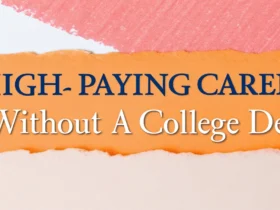


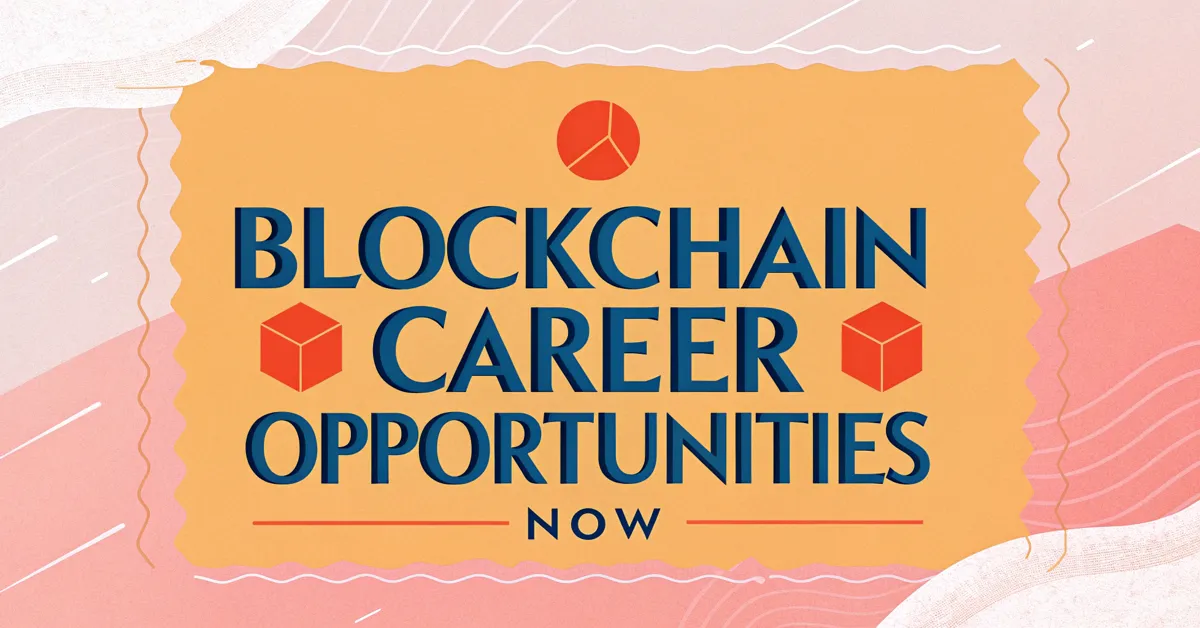
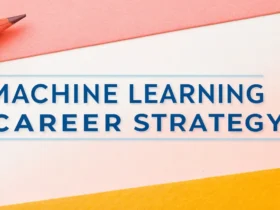






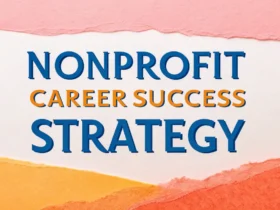
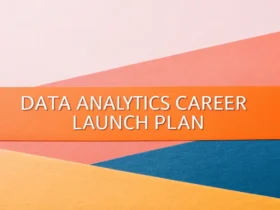
Leave a Reply
View Comments